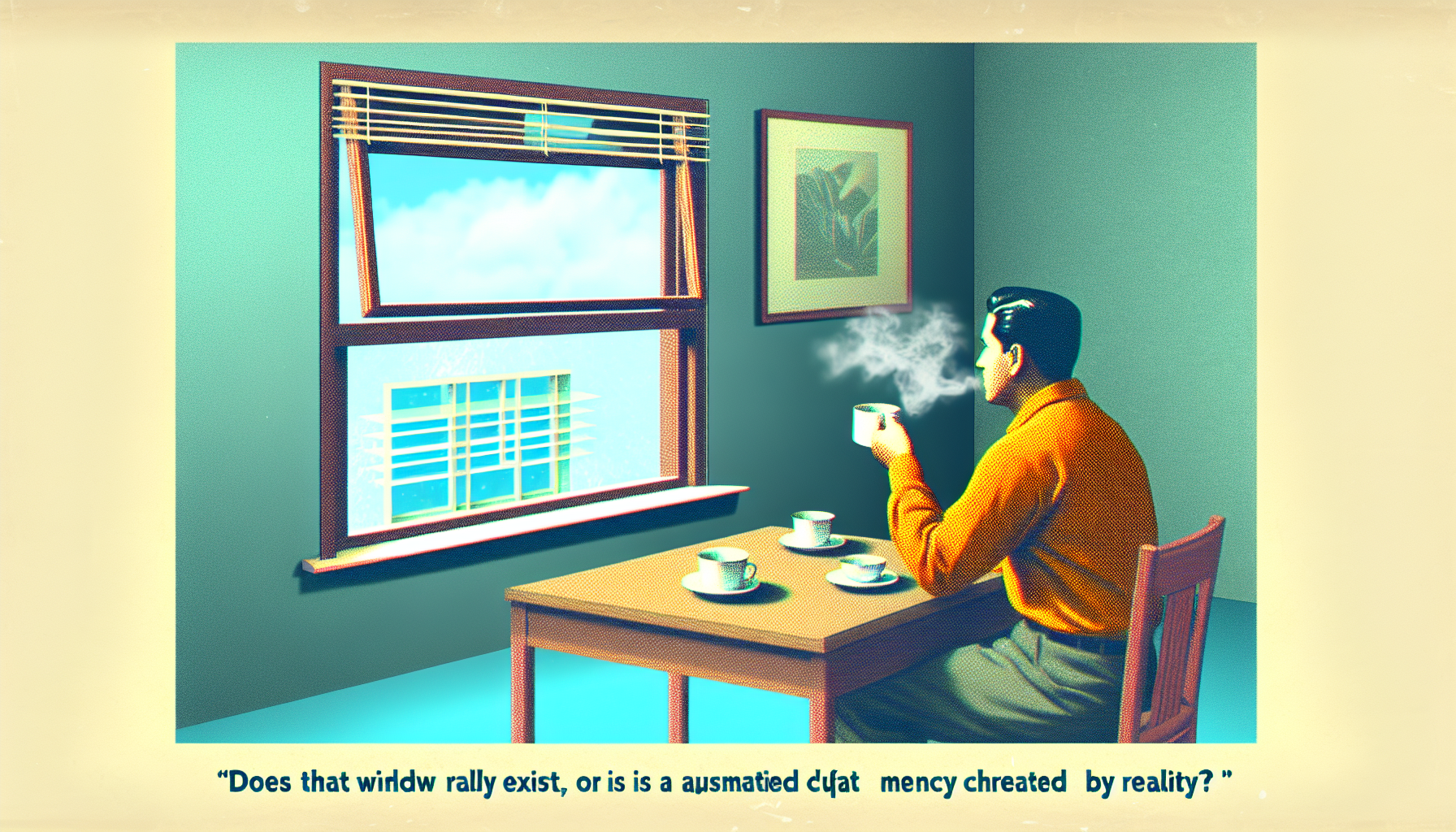Imagine waking up one morning, sipping your coffee, gazing out the window, and suddenly wondering if that window even exists. It’s not an existential crisis, nor the result of too many late-night philosophy podcasts. Rather, it’s the unfolding reality in a world where artificial intelligence has the power to reshape our very understanding of truth and reality. In this world, AI not only converses and performs tasks but also has the remarkable ability to simulate realities that could be indistinguishable from the actual world that surrounds us.
The Layers of Simulated Reality
AI’s increasing sophistication in creating simulated realities prompts us to ponder: what happens when these simulated realities are utterly indistinguishable from the ‘real’ world? Delving into this notion doesn’t require us to be Neo from “The Matrix,” but rather challenges us to reflect on how we perceive, process, and determine truth.
We already live in layers of reality created by digital and media environments—virtual worlds in gaming, augmented reality features in apps, and entirely constructed environments for arts and entertainment. These layers stand on the frontier of what AI might further develop: simulated realities so plausible they can trick the senses entirely.
Now, this wouldn’t necessarily mean waking up from a feverous dream, realizing your house plant is actually a digital simulation. However, such an advancement could profoundly affect our perception of truth, making us question the empirical solidity we often take for granted.
Truth or Fiction? AI’s Role in Distorting Reality
The realm of deepfakes and AI-generated content has already stirred the pot on what is true and what is not. Consider AI’s ability to create video and audio content that replicates human voices and likenesses almost flawlessly. The line between reality and fiction blurs, nudging us toward skepticism of anything not personally verified. It’s as if trust itself has been put through a shredder—and we’re tasked with reconstructing it piece by piece.
AI’s role in this is akin to an expert magician whose tricks aren’t intended to deceive maliciously but to demonstrate that deception is possible. This capability, however, holds immense sway over information and identities. The ability to craft narratives that appear real but are entirely fabricated changes our relationship with the truth, often forcing us to critically evaluate every piece of information we encounter.
Reconstructing Our Epistemological Foundations
Philosophers have long debated what we can know and how we can know it, a branch of thinking known as epistemology. With AI’s potential to create simulated realities, these debates take on new gravity. If AI-generated environments can be crafted to be as convincing as reality itself, the bedrock of epistemology may require reforging.
In essence, simulated realities challenge the reliability of sensory experience as a path to knowledge. We may increasingly rely on other methods—perhaps data-based verification or collaborative consensus—to determine truth. Our trust frameworks will likely evolve from individual perception to collective agreements on the authenticity and integrity of information.
Assumptions and Ethical Considerations
As we edge closer to a future bustling with AI-driven simulated environments, our assumptions require reevaluation. Will we assume that everything is a potential fabrication until proven otherwise? Or might we cultivate new ethical guidelines that prioritize transparency and authenticity in both digital and physical spaces?
The ethical implications loom large. How would society cope with an abundance of simulated experiences that promise unparalleled escapism or enhanced reality? Will there be protocols to ensure people are aware they are stepping into simulations? These questions not only shape the ethics of AI development but also reflect the moral fabric of the societies we inhabit.
Moreover, the question of consent becomes paramount—is it given before we enter these digital wonders, or do we fall victim to inadvertent simulation without our knowledge?
Taking it Lightly… For Now
In lieu of slipping into a spiral of existential dread, let us take a moment to step back, breathe, and perhaps laugh at the irony of it all. Humans, after all, are no strangers to challenging reality. From illusions in magic shows to Hollywood’s CGI marvels, we’ve long been entertained by the idea that our senses can be fooled. In some way, AI’s potential is merely upgrading our age-old penchant for creating and experiencing worlds beyond the confines of our flesh-and-bone reality.
Yet, as much humor as we can find in these quirks of perception, the rise of AI in crafting simulated realities demands a sober reflection. It beckons each of us to participate in defining the contours of truth in this new era. Whether we’re dreaming or awake, by questioning the nature of reality and truth, we might find more solid ground in navigating both the world as we know it and the worlds AI may dream up.
So, the next time you sip your morning coffee and gaze out the window, perhaps spare a gentle thought for the AI that might someday ask, “Is this coffee real?” That should make for an interesting breakfast conversation, wouldn’t you say?

Leave a Reply